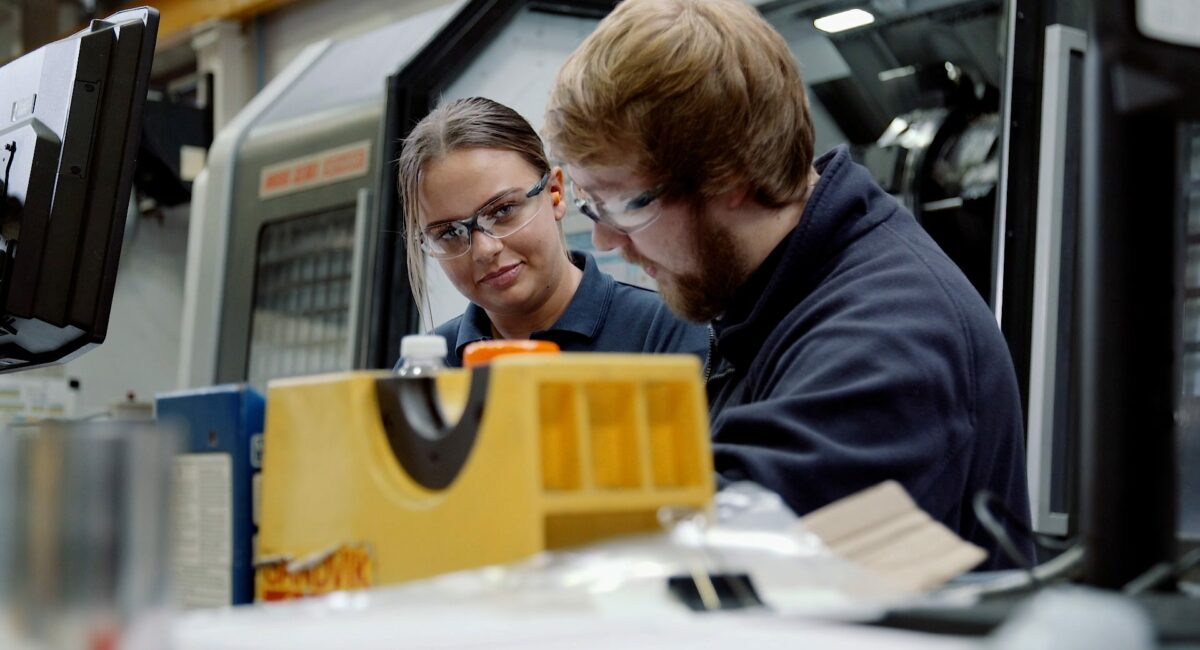As part of National Apprenticeship Week 2022, we asked some of our current and former apprentices what their advice for apprentices who are just beginning their training would be…
1: “My advice for apprentices would be don’t be afraid to ask questions. You’re not meant to know all the answers, so be willing to learn and get stuck in. There were times I struggled but I am glad that I stuck it out because it has led me to where I am.”Patrick Keenan, Valve Technician and former Engineering Apprentice at BEL Valves.
2: “My advice would be to just do it. There are so many benefits to doing an apprenticeship and you’ll get to learn on the job whilst meeting lots of new people. You’ll get to hear lots of different points of view as well which really helps you to develop as a person. I’m really glad I chose an apprenticeship rather than going to university.”
Sam Barton, 3rd year Maintenance Apprentice at Rotary Power
3: “It’s important to find an apprenticeship that you’re going to enjoy. I did my work experience at Michell Bearings before I started so I had an idea of what it might be like, so my advice for apprentices is to try to get some work experience if possible. The website was also helpful and gives a good idea of what you can expect. Just do as much research as you can!”
James Marriner, 1st year Assembly and Test Apprentice at Michell Bearings
4: “I would say don’t be put off engineering just because you’re a girl. Initially I was nervous about being the only female on the shop floor, but I quickly I realised there was nothing to worry about. Hopefully over time we will see even more women in engineering!”
Annabel Dalby, Tendering Technician and former Engineering Apprentice at BEL Valves
5: “My advice is, if you enjoy engineering then you should go for it! Just make sure you’re willing to put the work in and remember it will all be worth it in the end when you’re qualified.”
Dylan Hedley, 1st year Assembly and Test Apprentice at Rotary Power
6: “Once you start the apprenticeship, stick at it and persevere. It’s a great feeling at the end of the four years knowing you’ve passed. I’m really excited to see what the future brings and this course has been an amazing stepping stone to achieving my goals.”
Holly Allen, Machining Centre Operative and former Engineering Apprentice at BEL Engineering
7: “It’s quite an intense process because you’ve got to go to college as well as doing training on the shop floor, so come prepared to work. It’s also important to come prepared to ask questions because that’s what helps you to progress. Find out who the most experienced people are at your workplace and quiz them for all they’re worth. That’s what I did when I first started in the 1970s!”
Gary Smith, Engineering Maintenance Manager and former Apprentice at Rotary Power
8: “My advice to new apprentices would be to approach all new tasks as learning opportunities. There is always a lesson and something to learn in new experiences and it is very beneficial to take away as much knowledge and information, as it can always be of use in the future”
Megan Bradwell, Training and Administration Coordinator and former Commercial Apprentice at CMP
9: “Take advantage of the opportunity to learn as much as you can whilst being paid to do so. If you work hard and do well, you have the chance to get a secure job at the end of your training so always try your best and grab the opportunities given to you.”
Brandon Dalton, 4th year Engineering Apprentice at Rotary Power
10: “My advice to new apprentices would be to take every opportunity you can get. An apprenticeship is all about learning, so if you’d like to gain knowledge about a department or system, make sure you speak up. Getting your foot in the door can be extremely beneficial at the end of your apprenticeship.”
Mia Nichol, Marketing Assistant at CMP and former Commercial Apprentice at BEL Engineering
Our award-winning Apprenticeship+ scheme provides apprentices with invaluable hands-on experience in a range of engineering skills, alongside recognised professional qualifications.
Could an apprenticeship with the British Engines Group be the beginning of your career in engineering? Take a look at our frequently asked apprenticeship questions to find out more.
